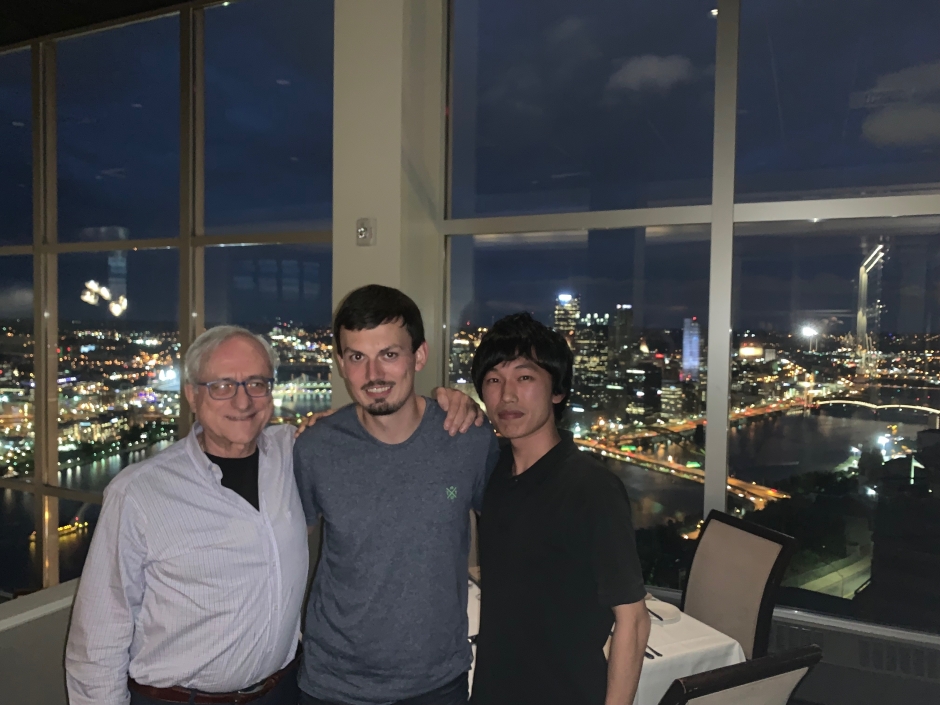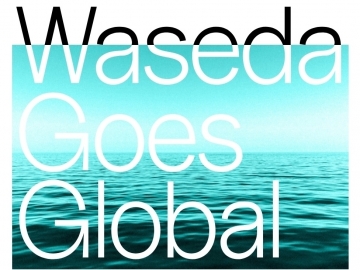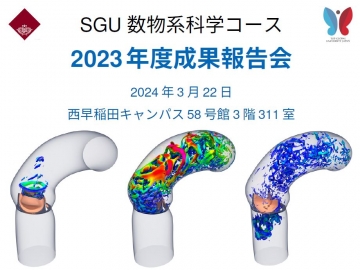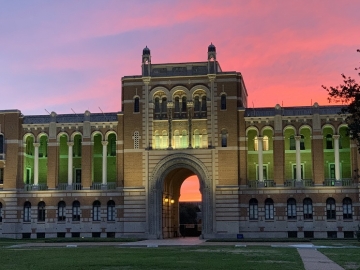Keiichi Watanabe, a student enrolled in the mathematical and physical sciences doctoral course of the Multiscale Analysis, Modelling and Simulation Unit, studied abroad at the University of Pittsburgh from May 25 – September 2, 2019 to visit Professor Giovanni Paolo Galdi and study the Navier-Strokes equations and related topics. Below, he reports his study abroad experience.
I studied the global well-posedness of Navier-Stokes-Korteweg equations in the whole space. This system is an extension model of the Navier-Stokes-Fourier system. A feature of this model is that the density gradient appears in the stress tensor, which is a consequence of the second gradient theory due to a theory of van der Walls―this density gradient term corresponds to the capillary effect and originally introduced by Korteweg in order to analyze the structure of liquid-vapor phase changes in 1901. To prove the well-posedness of this system and understand a mathematical property of a solution are important because the Korteweg system includes applications to diffuse interface models, shallow water models, quantum fluids models, and so on. Motivated by these interesting facts, I showed the global well-posedness of the Navier-Stokes-Korteweg equations for a small initial data under suitable conditions. In the “usual” compressible Navier-Stokes equations, we get not only the parabolic behavior but also the hyperbolic effect, which yields the derivative loss for the density function. However, the Navier-Stokes-Korteweg system does not include such derivative loss thanks to the density gradient term contained in the stress tensor. Also, due to this fact, it is possible to prove the existence of a global strong solution to the Korteweg system with the help of the maximal regularity results of the negative of Laplace operator, which, combined with an embedding property of a bounded uniformly continuous spaces, I obtained the global well-posedness results. I wrote down these things as a research paper and submitted to a peer-reviewed journal.
After then, I tackled to the moving contact line problem of the Navier-Stokes equations. This is one of the challenging problems nowadays. Although there are several results treating the stationary flows, it is difficult to find a result of the non-stationary flows. I found the key point of this problem and tried to read and understand the papers which deal with this point. Since nobody has obtained an existence result yet, I will challenge to prove the well-posedness of this system.
I first would like to express my sincere gratitude to Prof. Giovanni Paolo Galdi for his warm hospitality and encouragement. Thanks to his help, I did not have a problem during my stay in Pittsburgh.
He made time and discuss with me so often and I had variable advice from him. His advice was incisive so that this helped me to proceed with my study so much. I also learned not only mathematics but a culture or geography of the US, especially of Pittsburgh, from him sometimes. It was very interesting for me and made me possible to speak to the other Ph. D. students―it was not difficult to find a topic of talking in the break. I hope I got a nice experience for an English conversation.
I am, finally, grateful to Prof. Yoshihiro Shibata and Top Global University Project (Waseda University) for giving me such a great opportunity to study at Pittsburgh.

I enjoyed dinner with Prof. Giovanni Paolo Galdi and Mr. Thomas Either, who was a visiting student from Germany, at a really good restaurant. I appreciate for his kind hospitality for my stay in Pittsburgh.








